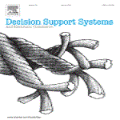Low attendance levels in medical appointments have been associated with poor health outcomes and efficiency problems for service providers. To address this problem, healthcare managers could aim at improving attendance levels or minimizing the operational impact of no-shows by adapting resource allocation policies. However, given the uncertainty of patient behaviour, generating relevant information regarding no-show probabilities could support the decision-making process for both approaches. In this context many researchers have used multiple regression models to identify patient and appointment characteristics than can be used as good predictors for no-show probabilities. This work develops a Decision Support System (DSS) to support the implementation of strategies to encourage attendance, for a preventive care program targeted at underserved communities in Bogot\'a, Colombia. Our contribution to literature is threefold. Firstly, we assess the effectiveness of different machine learning approaches to improve the accuracy of regression models. In particular, Random Forest and Neural Networks are used to model the problem accounting for non-linearity and variable interactions. Secondly, we propose a novel use of Layer-wise Relevance Propagation in order to improve the explainability of neural network predictions and obtain insights from the modelling step. Thirdly, we identify variables explaining no-show probabilities in a developing context and study its policy implications and potential for improving healthcare access. In addition to quantifying relationships reported in previous studies, we find that income and neighbourhood crime statistics affect no-show probabilities. Our results will support patient prioritization in a pilot behavioural intervention and will inform appointment planning decisions.
翻译:为解决这一问题,保健管理人员可以通过调整资源分配政策,提高出勤率,或尽量减少无诊者的业务影响。然而,鉴于病人行为的不确定性,产生有关无诊者概率的信息,可以支持这两种方法的决策进程。在这方面,许多研究人员使用多重回归模型来确定病人和任用特点,而不能用作不见诊的概率的良好预测器。这项工作开发了一个决策支持系统,以支持执行战略,鼓励出勤,针对哥伦比亚波哥大地区服务不足的社区实施预防性护理方案。我们对文献的贡献有三重。首先,我们评估不同机器学习方法的有效性,以提高回归模型的准确性。特别是,随机森林和神经网络用于模拟不线性和变异相互作用的问题核算。第二,我们建议采用新颖的多层次相关性解释系统,以更好地解释网络预测出勤率,针对哥伦比亚波哥大地区服务不足的社区实施预防性护理方案。我们对文献的贡献有三重。首先,我们评估不同机器学习方法的有效性,以提高回归模型模型的准确性。我们用随机森林和神经网络来模拟非线性和变异相互作用的问题核算。我们建议使用跨层相关性的相关性解释,以便改进网络预测的可解释性网络的可测度,从模型中获取的准确度,从我们报告的风险评估中,我们将研究将研究中找出一个稳定的影响评估。





